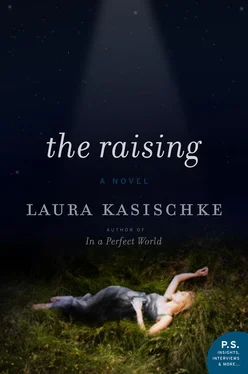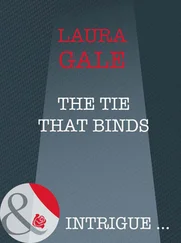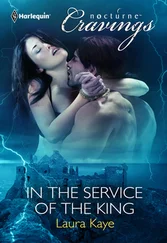Looking at those lily-white hands, Shelly reminded herself, inhaling, that she must not faint. And she must not cry. And she must not let her voice shake. And she must not put her own hands over her face and stifle a terrible little sobbing scream—although she’d done this at least once each hour since getting the news that a formal grievance had been filed against her, and that she should probably consult with a lawyer.
“Hello,” the dean said, rising from his chair just long enough to get his butt a few inches off the seat before setting it back down, tightening his tie as if to hang himself, and then gesturing with a flat open hand to his administrative assistant. “This is Allison. She’ll be taking notes. Have a seat, Ms. Lockes.”
The dean hadn’t called Shelly “Ms. Lockes” since he’d hired her. Although she would not have called him a personal friend, they had known each other a long time now. She’d watched him go gray. She’d sent cards to his children when they graduated from this or that, and a bouquet to his house when his sister died. He’d always liked her, and she him. They had, she thought, seen one another as occupying together an island of good taste in a sea of philistinism. Early on, he’d complained bitterly to her about the new Jazz Department, but that turned out to be nothing compared to the folk/rock, and then the pop/rock, course offerings that followed with the years. Their only disagreement when it came to music was about Mozart, whom Dean Spindler saw as superior to Handel. Shelly had insisted on her own assessment: that Mozart was a youthful machine, brilliant but soulless, and that Handel was a mortal who’d gotten a glimpse of eternity and put notes to it. Dean Spindler had charmingly pretended to be offended, but for Christmas she’d given him a recording of Giulio Cesare , and during Christmas break he’d emailed her telling her he’d been listening to it nonstop:
You’ve nearly convinced me, Shelly. I am surprised, and grateful, for this late-life awakening. I hope we have many years as colleagues ahead.
“Did you bring your lawyer?” he asked.
Shelly shook her head. She sat down in the empty chair across from him. “I don’t have a lawyer,” she said.
“But you were advised to seek legal counsel?”
Shelly nodded, but he seemed to be waiting for her to speak. “Yes,” she said, and the administrative assistant scratched lightly across her pad without looking either at Shelly or at the words she was writing, as if she were trying to take notes without being accused of taking notes.
“We need to have that for the record—that you were advised to bring a lawyer, and chose not to do so,” the dean said.
Shelly nodded.
“Also, we need to have it on record that you understand what this disciplinary action is about.” He cleared his throat then, but he seemed less embarrassed now, emboldened by the high moral ground on which he safely stood. “So, do I need to show you the photographs, or can I simply describe them, and you can tell me whether or not you’re one of the subjects in them?”
“You don’t need to do that,” Shelly said. There was no way to keep her voice from cracking. It was as if it belonged to someone else.
“Actually, I’m required to do that. Believe me, I’d rather not. But if you don’t confirm that the photographic evidence we’re using is the same evidence you’re familiar with, later you could claim confusion, and this could go on forever.”
Now he sounded bitter. Put out. She was, she knew, probably adding all sorts of tedious tasks to his day, not to mention the discomfort, the unsavory nature of this.
“It won’t go on forever,” Shelly said, “believe me,” and then she put her face in her hands and began to weep, exactly in the manner she had vowed not to. With hysterical abandon. With deep wrenching sobs. With bottomless grief and self-pity and self-loathing. She had no idea what the dean and his assistant were doing as she wept, but no one said a word, or seemed to move, stand, leave the room, sneeze. It was as if they were frozen in time, and in horror, somewhere beyond her weeping. She wept and wept, and it was only when she realized that she had no choice—that she was going to drown right there in her own palms, her accumulated tears, if she didn’t ask for a tissue—that Shelly finally looked up and saw that the administrative assistant was gone.
The dean, it seemed, had been paralyzed into silence. He managed to hand her a tissue, but the expression on his face as he did so was that of someone who’d been staring into an abyss of shame so long that its reflection was permanently etched on his face. She took the tissue from him, and then he handed her the whole box. He was squinting, as if Shelly were very far away from him, or incomprehensible in every detail, and then he said, like an actor stepping off a stage, “Shelly. Jesus. What the hell happened here? How did this happen ?”
She opened and closed her mouth, but finally quit trying to speak. There were tears running off her lips. She could only imagine what her face looked like.
“You do understand,” he asked her, “don’t you, that this means the end of your employment with the university? And that’s the best-case scenario. Who knows what other complications could follow? Lawsuits? Investigations?”
Shelly nodded, and he rubbed his eyes, leaned back in his chair, addressed the ceiling:
“You can have a day or two to clean out your office, and until the final paperwork, all of that, and the various committees, et cetera, you’ll officially be on leave, with your salary. Again, you can get yourself a lawyer, but I have to tell you in all honesty, especially with our new policies regarding inappropriate use of power in student/faculty and employer/employee relationships, it’s—”
“I know,” Shelly said. “I know. I know.”
He looked at her again, and then he nodded gently toward the door, and Shelly stood.
He said good-bye as she stepped out the door, but she couldn’t turn around.
Even with the distraction of Lucas and Perry and teaching and meetings, Mira had been bereft without the twins. She found herself lingering in the doorway of their room, staring into it, feeling the kind of grief that would have been more suited, she thought, to their deaths than to their being gone for two days to visit their grandmother. When she found the UPS package with their Halloween costumes in it, she’d ripped it open, and her eyes had welled with tears.
She had ordered them off the Internet:
Little cow hoods with little cow horns, little hoofed hands, black and white spots.
The boys had been going through a cow phase for months. At the petting zoo they’d stood enraptured before one particular enormous bovine mass of weight and skepticism, humid nose pulsing, as if recognizing something from their previous lives.
The cow chewed her cud with such pensive blankness, looking from Matty to Andy, Andy to Matty (both were struck dumb in her presence), for so long that Mira finally felt the need to pull them back, fearing that this cow was either as in love with them as they were with her or was about to let loose her many years of petting zoo resentment and frustration on them.
But as Mira tried to take the twins’ arms and guide them over to the llama, they began to shriek with the kind of outrage she’d seen on documentaries about parents trying to kidnap their children from cults.
And, after that day, everything was cows.
Cows in books. Cows in magazines. Cows in pastures glimpsed in passing from the freeway.
Mira had delighted the twins with two stuffed Beanie Baby cows one afternoon. She’d stopped and bought them at the bookstore on her way home from the office. Each of them had snatched one of the cows up and now guarded it jealously from the other. She had no idea how they could tell the cows apart, but they could. Once, she accidentally tried to tuck Matty’s cow into bed with Andy, and he’d sneered at it in disgust and tossed it over to his brother, exclaiming what sounded to Mira like, “Buckholtz!” or “Bullshit!” She was hoping it was bullshit , which would mean that the “imitative stage” of their language development, as the books she was reading called it, was getting on schedule. She had no doubt that they’d heard both her and Clark utter that word on numerous occasions.
Читать дальше












